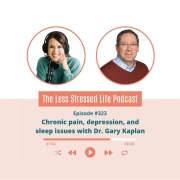How Much Fiber Do We Need and Why It Matters
Telling someone to eat more fiber is not very exciting. It may sound like a boring detail, one that could be forgotten quite quickly, but eating more fiber is one of the best things you can do for your health.
Researchers at Stanford University have discovered that bacteria in the gut (the good kind) like to feast on fiber. This keeps the good bacteria happy and by extension, they’re free to help make our gut healthier. Here are a few more things to know about fiber.
Why we need fiber
A high intake of fiber is associated with lower cholesterol and improved blood sugar control. Fiber can also lower your risk of:
- Colorectal cancer
- Gastrointestinal issues like diverticulitis, constipation, and hemorrhoids
- Heart disease
- High blood pressure
- Type 2 diabetes
Because fiber also acts as a prebiotic, it serves as a food source for many strains of beneficial gut bacteria.
Additionally, research shows that in countries where people consume high amounts of fiber in their diets, the overall rates of chronic disease are low.
How much fiber do you need?
Nutrition experts say 25 grams of fiber a day is good for regulating digestion. Most Americans consume around 16 grams a day. This is a great start but it’s just short of where most people need to be.
The guideline of 25 grams is a general guide and does not take into account your medical history or history of any pre-existing digestive issues that you may have. For example, if you suffer from irritable bowel syndrome (IBS) or inflammatory bowel disease (IBD) that number may differ. In these cases, it’s important to speak to your health care provider or nutritionist about what amount of fiber they think is appropriate for you.
What foods are high in fiber?
Think about everyday foods that you can incorporate into your daily diet that already have a high amount of fiber. This will get you to your 25 grams much faster. High fiber foods include:
- Fruits and Vegetables: Apples, avocados, bananas, berries
- Carbohydrates: Potatoes, oats, and lentils
- Legumes: Beans, peas, and lentils
For a more comprehensive list of high fiber foods, visit the Dietary Guidelines for Americans’ “Food Sources of Dietary Fiber”.
Taking fiber supplements
Although it is possible to take supplements that contain fiber, it’s always better to get your fiber directly from the source. Eating a well-balanced diet with some of the food items mentioned above is a much better way of getting your recommended fiber intake. Food is the best source of fiber.
Keep constipation away
If you frequently suffer from constipation or have hard stools, you might be low on fiber. The consistency of your stools can be a good marker of short or long-term health. In the short term, hard stools might mean you’re dehydrated or probably not drinking enough water. In the long term, stools that are consistently difficult to pass might be a sign that you’re low in fiber. To help with regularity and stool consistency, try to reach that 25 grams of fiber daily.
Fiber and the microbiome
Eating a variety of high fiber foods is probably the best way of maintaining a healthy gut bacteria population. Research suggests that increased dietary fiber consumption can positively influence the diversity and population of the gut microbiome.
Fiber can help lower the risk of many common diseases and its role in the microbiome makes it a great food source to focus on. Where possible, try to increase your fiber intake. A little goes a long way in increasing your overall health.











Leave a Reply
Want to join the discussion?Feel free to contribute!